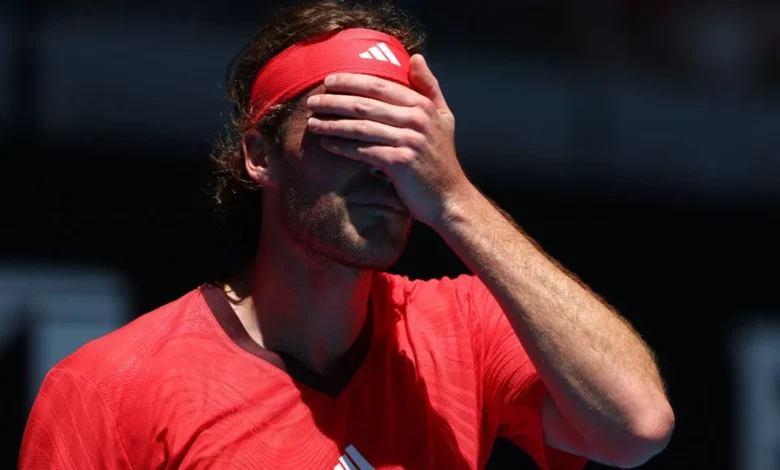‘The game is different now’: Why the ‘90s kids’ are struggling at Australian Open

Stefanos Tsitsipas remembered a different time. “I had a fresher mind back then, it seemed like I was hungrier,” Tsitsipas began, as he seemed to contemplate his career, his life, and everything in between. “I’ve been quite well established in the last couple of years,” he continued. “I have seen the game. I’ve done the tour over and over again, the same circle of tournaments and events.”
At the age of 26, Tsitsipas sounded as if he had suddenly woken up to find himself in a midlife crisis. In reality, the world No 12 and two-time grand slam finalist had just lost in the opening round of the Australian Open, suffering a shock defeat to the 20-year-old American Alex Michelsen. It was also the second grand slam in a row where the Greek had lost in the first round.
Except, that didn’t seem to be the reason for his dejection. In his press conference after the defeat, Tstisipas made some peculiar statements. Among them, he said he is a “better player” now than when he reached World No 3 in the rankings four years ago. Or when he was beating Roger Federer in the Australian Open fourth round at the age of 20. In any case, his recent results would disagree.
Rather, Tsitsipas was hit with the realisation that a new generation might have caught up with him. Across the net, Michelsen was now the up-and-coming 20-year-old, thriving on the big stage to take out the higher-ranked opponent. Elsewhere at the Australian Open, the shocks have continued, with the 18-year-old Brazilian sensation Joao Fonseca taking out ninth seed Andrey Rublev and the 19-year-old Czech Jakub Mensik defeating sixth seed Casper Ruud. The next generation have arrived, and that’s without even mentioning Jannik Sinner and Carlos Alcaraz.